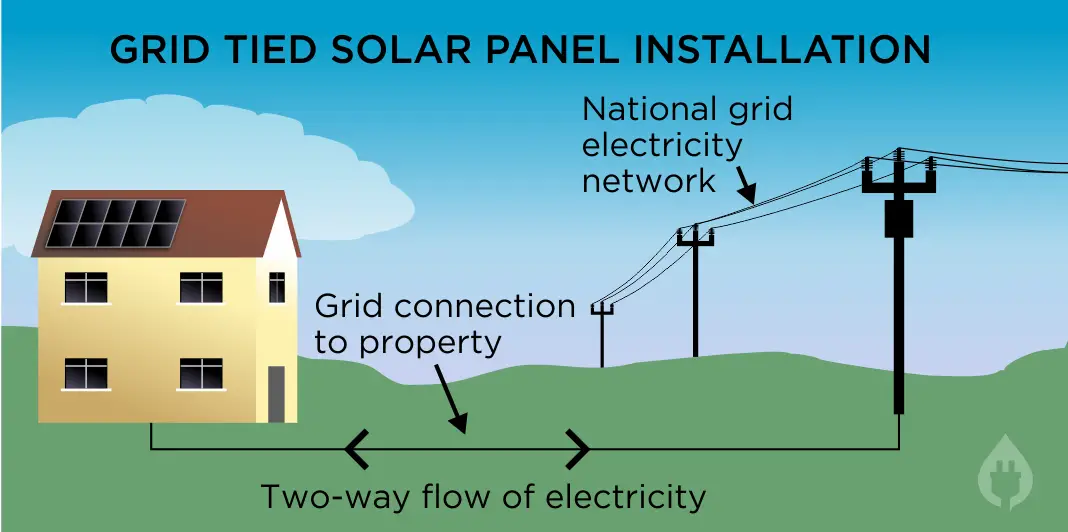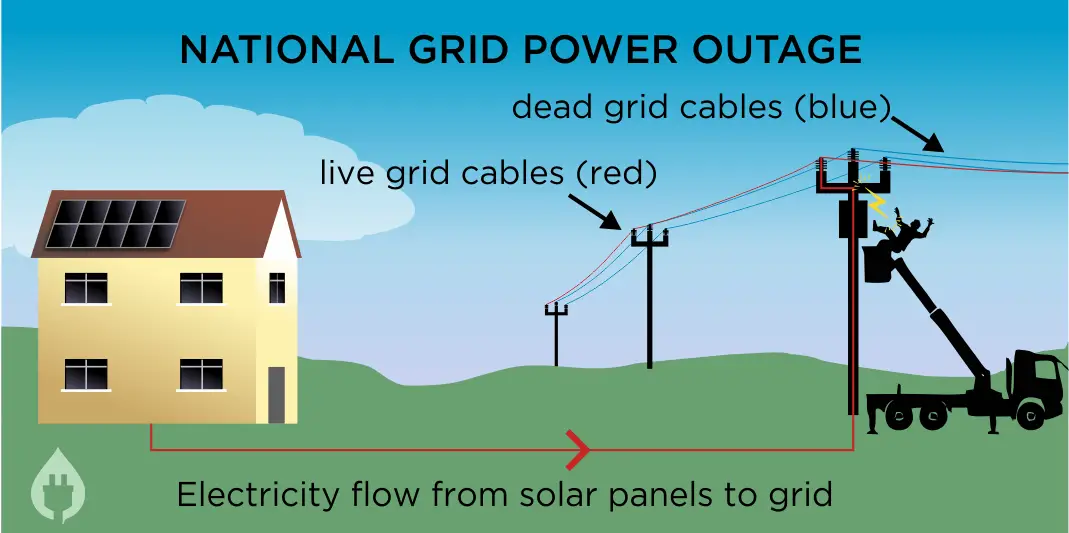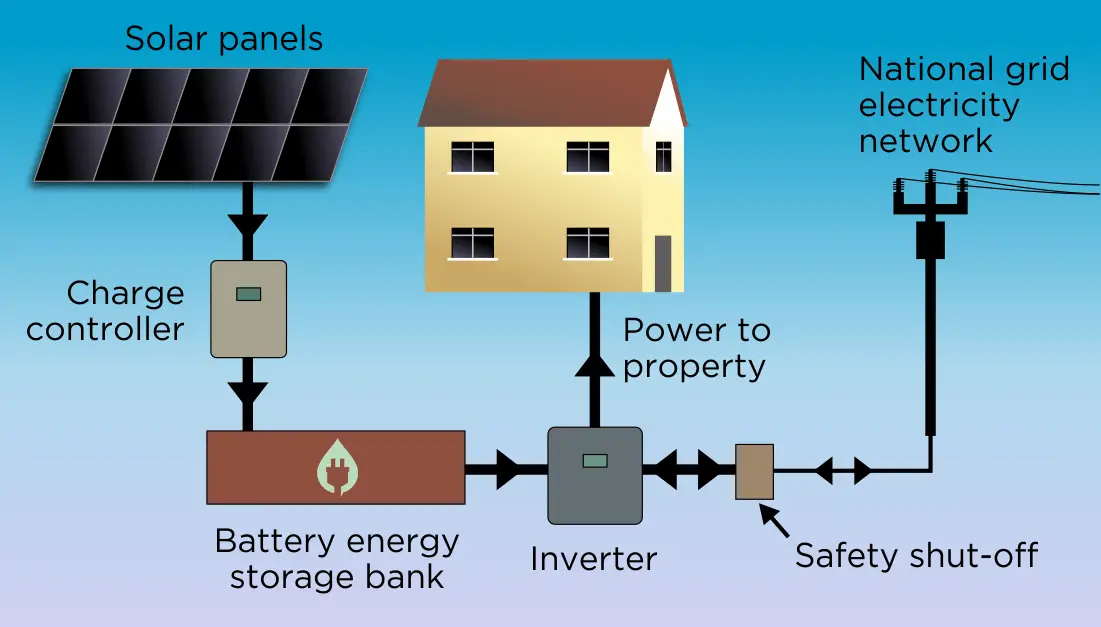The short answer to this question is: yes and no – depending on what kind of solar installation you have.
As long as the sun is shining on them, solar panels work; They convert sunlight to an electric current whether there is a power outage or not.
However, the complicating factor is when those solar panels are "grid tied." When a solar installation is grid tied (grid connected means the same thing), it means that the panels are wired into the national grid electricity distribution network.
With a grid tied installation, any excess solar generated electricity that is not used by the owner is sent into the national grid through the property’s mains electric grid connection. This then allows another consumer to use the electricity, rather than it going to waste.
Table of Contents
Why Some Installations Stop Generating Power
Many utility providers offer export tariffs, where they pay solar panel owners for the electricity that they supply back to the grid, encouraging people to install grid tied solar systems.
But the downside of this system is what happens when there is a power outage on the national mains grid.
Imagine a property that has a grid tied solar installation. The electricity in the grid connection cable to the property can flow in either direction, depending on whether the property is drawing electricity from the grid, or supplying electricity to the grid from the solar panels (see illustration).

Now imagine there is a fault somewhere on the electricity grid, and there is a power outage (dead power lines shown below in blue). If the grid is down and the solar panels are still generating, there is still live electricity flowing through the grid connection cable and onto the grid network, and this is a serious problem.
When the utility company sends an engineer out, there is a risk the live cables could electrocute them.

For this reason, it is legally required that all grid tied solar installations have an automatic safety shut-off feature. If an outage on the grid is detected, then the solar panels are also shut off to prevent injury to engineers carrying out repairs to the grid infrastructure. Then, when the outage is repaired and the grid is live again, the solar panels are automatically switched back on.
This is the reason why solar panels may not work during a power outage. But this is not the case if the solar installation is off-grid.
Off Grid Installations
Some solar installations are not grid tied – these are called ‘off grid’ installations. The electricity they generate can only be used by the property they are immediately connected to.
It is impossible for an off grid solar installation to feed electricity into the grid, because they are not physically connected. So off grid solar panels will keep working throughout any grid outages, because there is no danger to anyone carrying out repairs to the grid.
Hybrid Grid Tied / Off Grid Installations
A third type of installation offers the best of both worlds: the hybrid system combines the advantages of both grid tied and off grid installations, although it is a more complicated installation.
As can be seen in the block diagram below, the inverter is connected to the grid through a safety shut-off device, so if there is an outage on the grid, the power output from the inverter is also shut off.

In this hybrid installation, even when the safety shut-off device has stopped the flow of electricity from the property to the grid, the solar panels continue to provide power to the property (through the battery energy storage bank).

